I first heard of Westone Audio when I was 30 years old. I was sitting in the Alley, a courtyard between buildings, at Hollywood California’s famous music school Musician’s Institute. My ears were filled with silicon my teeth gnawing on folded cotton, looking at a pamphlet filled with various custom In-ear monitors and ear plugs from brands like Ultimate Ears, Shure, and Westone Audio. It was 2005 and little did I know this company whom I was first seeing mentioned had helped invent the idea of in-ear monitors (IEMs) in 1985, 20 years prior to my first ear impressions. I never did buy the IEMs I had the impressions made for as the auditions I had never panned out into a touring gig and I slowly turned toward electronic music and started DJing leaving my dreams of playing guitar for a living to gather dust. A few months later I started on what would become an almost 20-year journey in personal audio buying a lime green iPod mini. I would run into the name Westone Audio time and time again at NAMM shows and in Ads. I knew Jude Mansilla the founder of the headphone hobbyist site Head-FI.org loved his Westone Audio IEMs along with the Shure SE846 that I bought and used as my main IEM for almost 10 years.
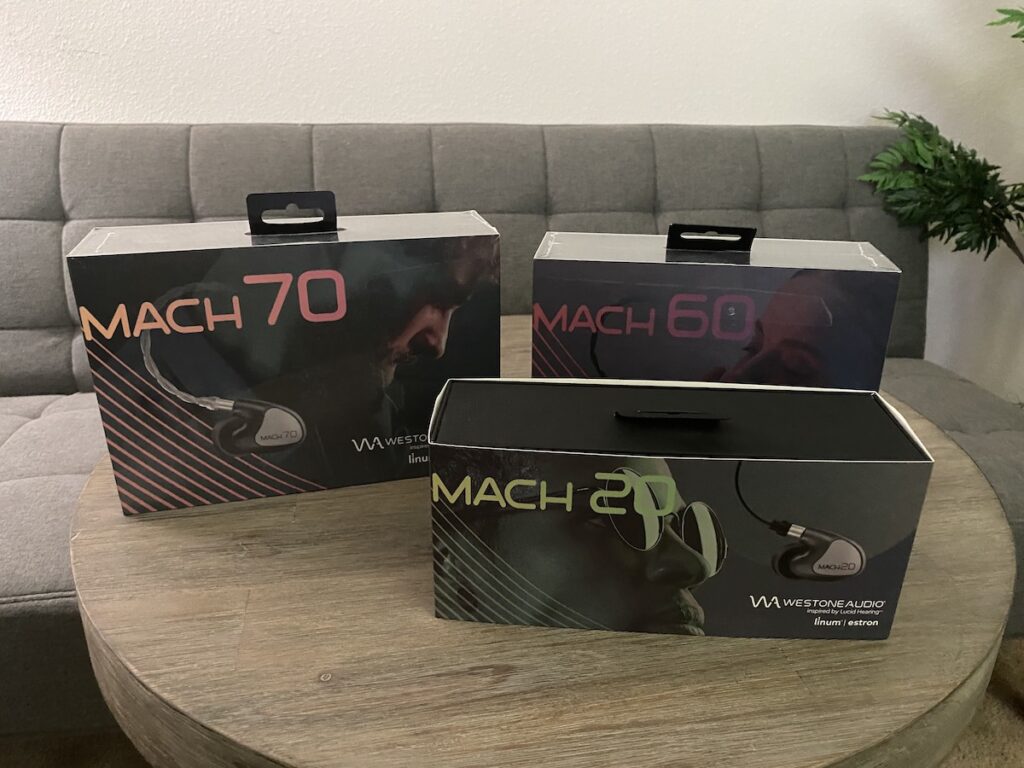
In 2020 the same year Westone Audio was acquired by Lucid Audio I moved in with my girlfriend and her two kids. Overnight my music listening habits had to change. While I love the sound of the children playing, and the dogs and birds fill the house with a home-like roar that I adore, I like to get lost in my music, and I had put my money into open-back headphones and desktop listening rigs that were an amazing experience but require a quieter listening environment. I ended up digging into my closet to retrieve my Shure SE846 and used them via the IEM output on my RME ADI-2 DAC for both work and most of my music listening.
Longing to match the quality of my big rig, I bought a Chord Mojo2 DAC along with Unique Melody MEST MKII and Aroma Audio Thunder IEMs. At CanJam SoCal 2022 on Jude’s advice, I listened to the new Westone Audio MACH series and was quite impressed with the comfort, balanced and musical presentation, and amazing isolation every model exhibited. In December when offered to review 3 models I was ecstatic and a bit anxious as I wanted to spend some serious time with these IEMS but had never attempted a multi-product review before. My long though ultimately unfulfilled history with this legendary brand only reinforced my excitement.
Build and Accessories
According to Westone Audio, the impetus for designing the MACH series was the attempt to match the tuning of the highly acclaimed E series of custom IEMs. In the company’s naming convention lies a hint as to the design. The number 10 in MACH 10 designates the number of Balanced Armature drivers, that is the 10 has 1 driver, the 20, 2 drivers, and so on. This matches the E series exactly. Each of the MACH series is supposed to match the E series in tuning as well as number of drivers. This was quite an undertaking due to the differences in how custom and universal in-ear monitors interface with the ear.
I received the Westone Audio MACH 20, MACH 60, and MACH 70 for review. They arrived in full retail packaging. Unboxing was a fun experience across the product line. All are the same size and approximate weight the only differentiating factors are the Model Name on the left IEM and which cable was included. The shells are molded plastic with a metal faceplate with the new Westone Audio WA logo on the right IEM and the aforementioned model name on the left. The nozzles are 2 mm in diameter which makes for easier ear insertion than a lot of modern IEMs. They may seem small but proved to be sturdy. Each model came with 10 sets of ear tips 5 silicon and 5 True Fit memory foam. These are all patented and are among the best tips I have used. I especially love the True Tip foam tips and used them on all models for the review duration as I found they gave the best seal.
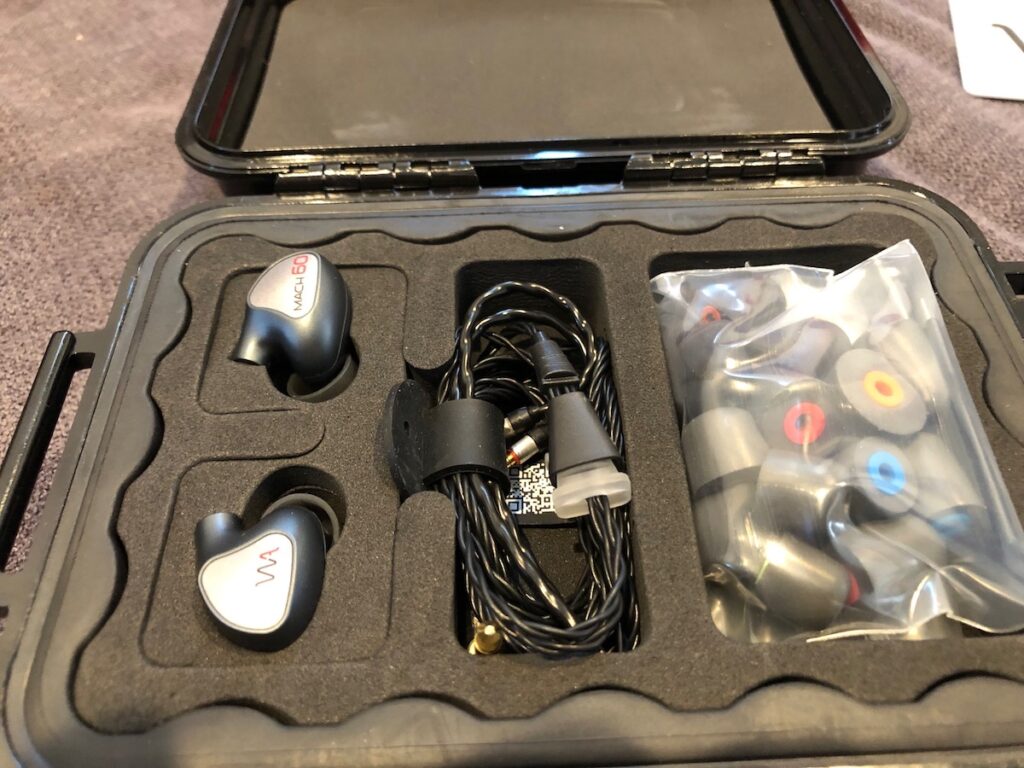
Comfort on all models was superb. In fact, it was so good that they became my first reach-for for late-night in-bed listening as well as all-day work meetings. They are so light and so much smaller than my other multi-driver IEMs that I could really just forget I had them in and enjoy the music, even laying with my ear on the pillow. I have IEMs that I feel may sound slightly better that cost double the price or more of the MACH 70, but none offer the same absence of ear fatigue that allows for an unencumbered marathon listening session.
The cables are all from Linum and are removable. They feature the newer IPX connector that is much better than either MMCX or 2-pin in my opinion, though it does limit cable rolling. I didn’t have any other IPX cables on hand to try out but I found the cables to sound superb as they were. The MACH 20 came with the Linum BaX cable which I believe is the thinnest cable I have ever used. It disappears when worn due to its minimum weight and thickness, though I did find it tangles easily and I was nervous handling it. It is a single silver-plated copper wire to each side and though it made me nervous it never once felt like it was breaking in use. The MACH 60 includes the Linum SuperBaX cable which is a heftier design with dual-twisted 4-wire construction and while not as light it did indeed provide slightly better clarity. The UltraBaX included with the MACH70 was another step-up using quad-twisted 4-wire construction with both the clarity of the SuperBaX along with a bit of added sparkle up top. Cable comparisons were done using the Westone Audio MACH 60 which I consider to be the most neutral of the bunch.
All models came with waterproof crush-resistant cases; a proprietary design for the MACH 20 and full-on Pelican cases for the MACH 60 and 70. Also included were cloth IEM bags and cleaning tools.
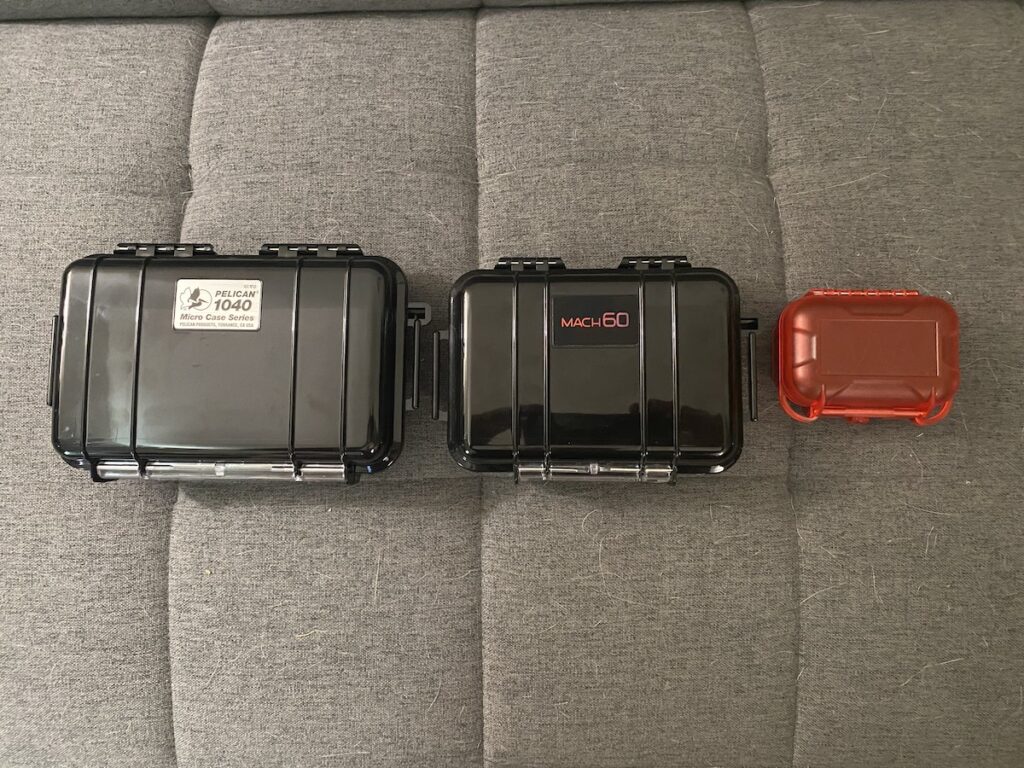
Sound Analysis and Technical Specifications
I had the 3 Westone Audio In-Ear Monitors for 2 months before I started writing the review. This was both due to a massive work project sucking the life out of me and to allow for proper break-in of the transducers. While break-in or burn-in of some electronics is controversial, most audio transducers seem to settle in after 40 to 50 hours of playing sound. I notice this much less with Balanced Armature drivers like those of the Westone Audios, still, it is my practice to allow this for all headphones. I don’t do anything special I just use them for work meetings and listening sessions. Hence, for the last 2 months, I have used nothing but the MACH series as far as headphone-type listening goes. I did not notice much of a change over that time frame so I don’t believe extensive break-in is actually needed in this case.
Every company has a house sound and Westone Audio is no different. Their house sound residing in the neutral and transparent neck of the woods as befitting a company renowned for being a go-to for on-stage monitoring for musicians. None of these three monitors show you music through rose-colored lenses. They are very adept at showing you what is on the recording and the quality of the gear they are played back with. Good in equals good out along with the negative image of that equation. Within that house sound the three models show slightly different tunings. Among the 3 the MACH 60 is slightly harder to drive at 100db sensitivity but all are easily driven by anything not needing exotic amplification though benefiting from it greatly.
MACH 20 – $399.99 MSRP
The MACH 20 has a neutral signature with a slightly forward mid-range. Well extended just higher than neutral neutral bass with detailed highs. The sound stage is quite wide though not very deep. Imaging is very good. To be honest the MACH 20 was only slightly less resolving of detail in comparison to the 60 and 70. The cost-to-performance ratio here is exceptional.
Listening to “Guess Who I Saw Today” from Samara Joy’s Grammy winning album “Linger Awhile” on Qobuz through my Cayin RU6 R2R dongle DAC was a great showcase of the strengths of the MACH 20. A very balanced sound signature with a detailed mid-range. Vocals were slightly forward above the piano which sounded balanced and well defined from the bass notes through to the highs. The instrument definition through the mid-range was superb. Soundstage and imaging were very good.
The 1983 recording of Leonard Bernstein with the Los Angeles Philharmonic performing “Gershwin: Rhapsody in Blue” showcased the tonal and imaging proficiency of the MACH 20. Played back through the RME ADI-2 DAC FS the pacing, rhythm, and timing (PRAT) through the MACH 20 was fantastic. The orchestra was balanced and had nice width though I felt it was slightly lacking in depth. Imaging was quite good. This is one of my favorite pieces of music and was a complete joy!
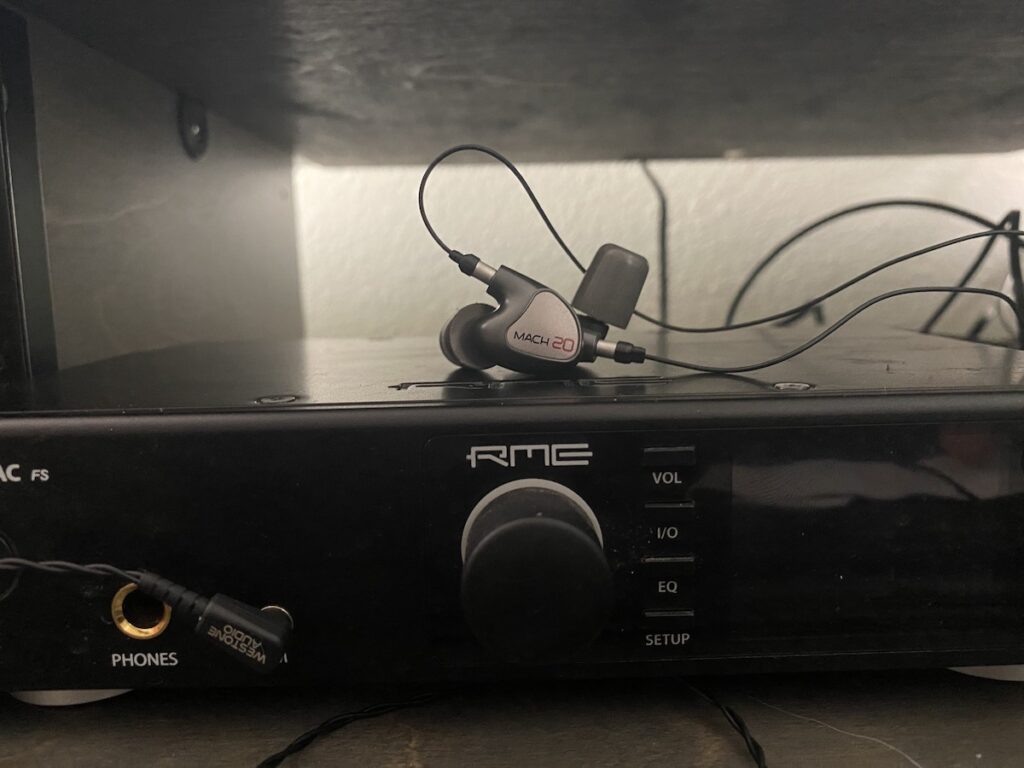
The MACH 20 features a proprietary dual-driver system with single low, single mid/high.
DRIVERS: Dual Balanced-Armature Drivers
FREQ RESPONSE: 20Hz – 18kHz
SENSITIVITY: 110dB @1kHz
IMPEDANCE: 96 Ohms @1kHz
MACH 60 – $1099.99 MSRP
The MACH 60 has what I would call a reference monitor tuning. This is a great on-stage monitor and could even be used for checking mixes when recording away from a studio. For the music listener looking for a natural sound, it could also be a great choice. The bass seems slightly elevated but the rest of the frequency range is smooth and natural with plenty of resolution and clarity through the midrange and treble. The treble while resolving is never harsh or fatiguing. The sound stage is truly wide with much better depth than the 20 along with great imaging.
The Elderbrooke/Bob Moses track “Inner Light” swirls into existence, the low bass synths pulsing rhythmically as an electric piano plays the melody. The gated compression is easily heard propelling the song forward as a rim shot sounding like a ticking clock fades in. The vocal enters with an expansive reverb that falls off it like mist. This track is huge even before the 808 kick drum shakes the floor. This is big room dance music and the MACH 60 easily showed its ability to sound massive without missing a detail.
“Dream of Monk” from the Fred Hersch, Esperanza Spalding live collaboration “Alive at the Village Vanguard” is exactly the opposite of massive. An intimate, playful even humorous celebration of the influence of Thelonious Monk on the two musicians is striking in its complex simplicity. The piano is well-balanced across the frequency range and sounds fantastic. The vocal nuances are ably followed down to the breath. The piano and voice sound great but it is the little off-stage audience sounds that give a sense of location and brings it life in your head. A brilliant showcase of the MACH 60 and its imaging abilities but mostly just a great performance.
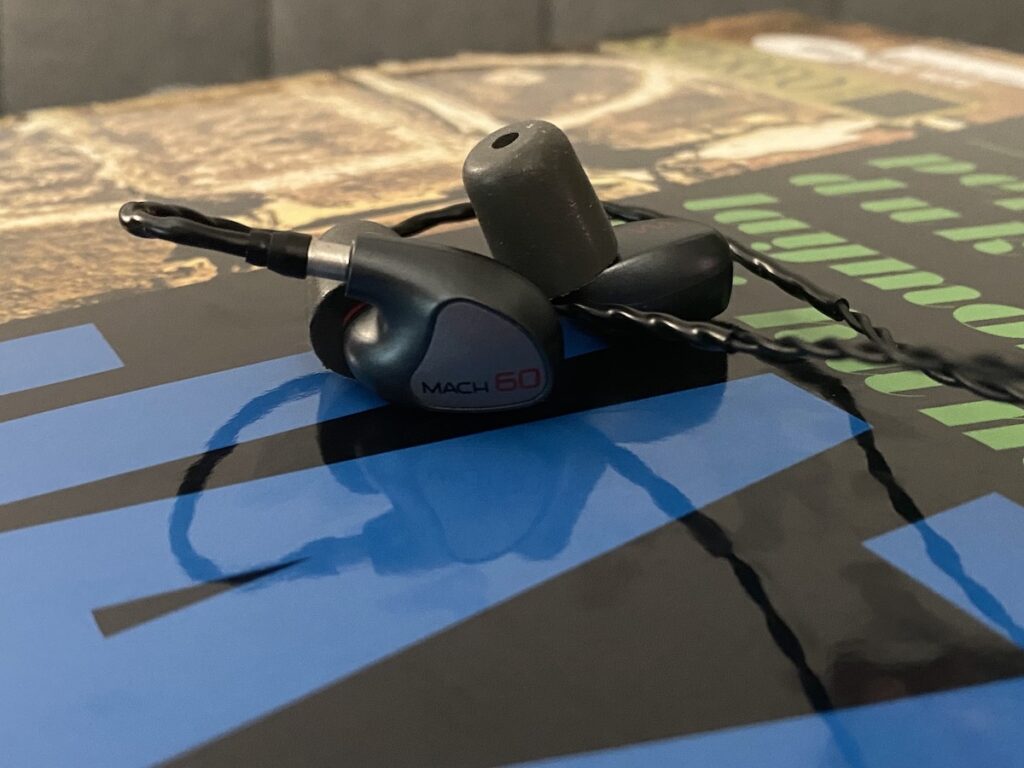
The MACH 60 features a proprietary six-driver system with dual lows, dual mids, and dual highs.
3-way Passive Crossover
DRIVERS: Six Balanced-Armature Drivers
FREQ RESPONSE: 8Hz – 20kHz
SENSITIVITY: 100dB @1kHz
IMPEDANCE: 35 Ohms @1kHz
MACH 70 – $1399.99
While the MACH 60 was to my ears the standout amongst the 3 IEMs on hand as a reference tool, the MACH 70 was my favorite for pure musical enjoyment. With a W shaped tuning, much deeper, punchier, and more prominent bass, very detailed and layered mids, and a resolutely detailed yet non-fatiguing treble, it has an ability to sound natural yet fun and involving. As the review period progressed the MACH 70 became the pair on my nightstand for my evening wind down before bed. A consummate all-around IEM it played everything I threw at it with aplomb.
On “Liquid Tension Experiment 3” is a wonderful reading of “A Rhapsody in Blue” by the progressive rock supergroup. The layers of keyboards and guitars are well defined through the MACH 70, showing all the nuance of articulation while never losing sight of the whole. The snap of the snare drum and its reverb tail are heard even as the intricate hi-hat work tumbles around it. It is this combination of micro detail while maintaining a cohesive piece of music that allows music to be enjoyed on multiple levels. If you want to hone in on an instrument you can but nothing unduly draws attention to itself.
To get a grip on the bass quality along with detail retrieval across the frequency range I cued up “Piece of Paper” from electronic music composer Amon Tobin’s masterpiece “ISAM” through the Chord Mojo2 and the MACH 70. The bass slammed and punched with texture and speed while all the layers of sound spun a whirlwind above. Tiny details presented themselves and then fell away like reading snippets of text on paper blowing in the wind. Truly intoxicating. So much so, I just let the rest of the album play.
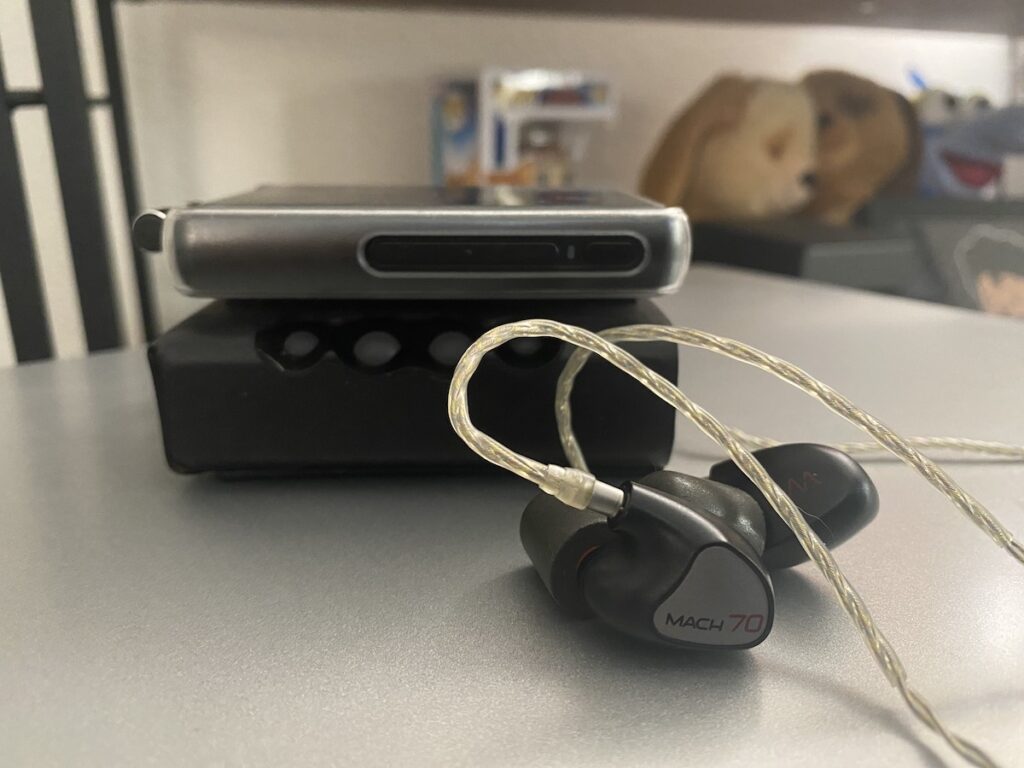
The MACH 70 features a proprietary seven-driver system with single low, dual mids, and quad highs.
DRIVERS: Seven Balanced-Armature Drivers
FREQ RESPONSE: 5Hz – 22kHz
SENSITIVITY: 110dB @1kHz
IMPEDANCE: 42 Ohms @1kHz
Conclusion
After 2 months of critical listening and pure enjoyment, my main conclusion is a question. Why did it take me nearly 20 years to get my hands on a set of Westone Audio IEMs? They more than live up to their legendary name bringing a transparent yet engaging presentation to the listener. Music delivered precisely and accurately as befits a monitoring tool, yet with emotional impact. The low end is slightly boosted and both phenomenal and subterranean on the MACH 20 and 70. The 60 had a more neutral bass but with the same great speed and texture. All 3 IEMs shine in the mid-range. Vocals and instruments are precise and layered in presentation. The highs are detailed yet never sibilant nor distracting. This musicality along with the supreme level of all-day comfort makes them all highly recommended with a high value at their price point with the MACH 20 being a legitimate bargain at $399.99.
Manufacturer’s Website: westoneaudio.com

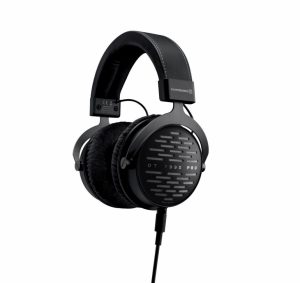
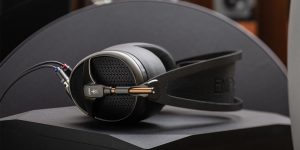
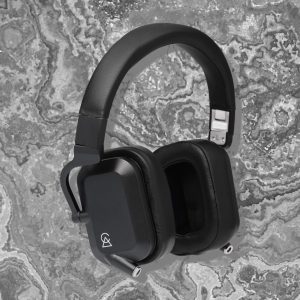
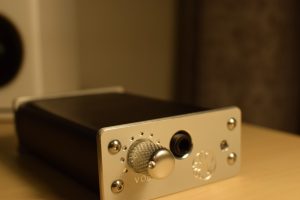
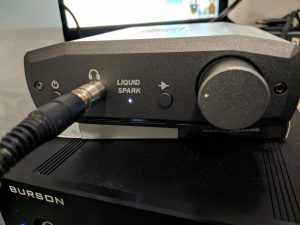
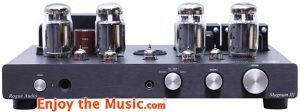
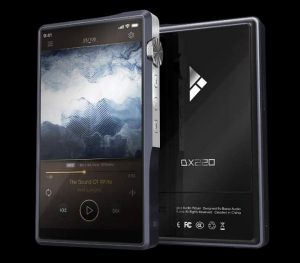
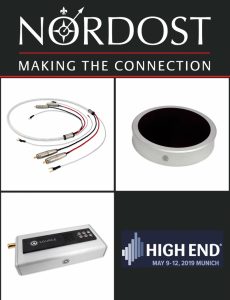



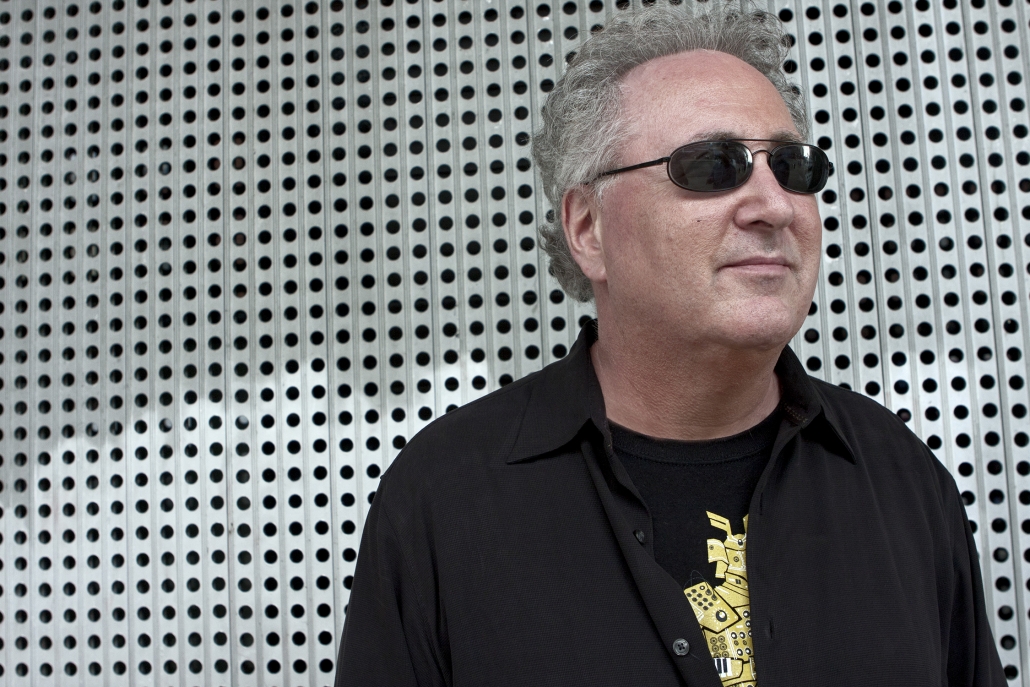

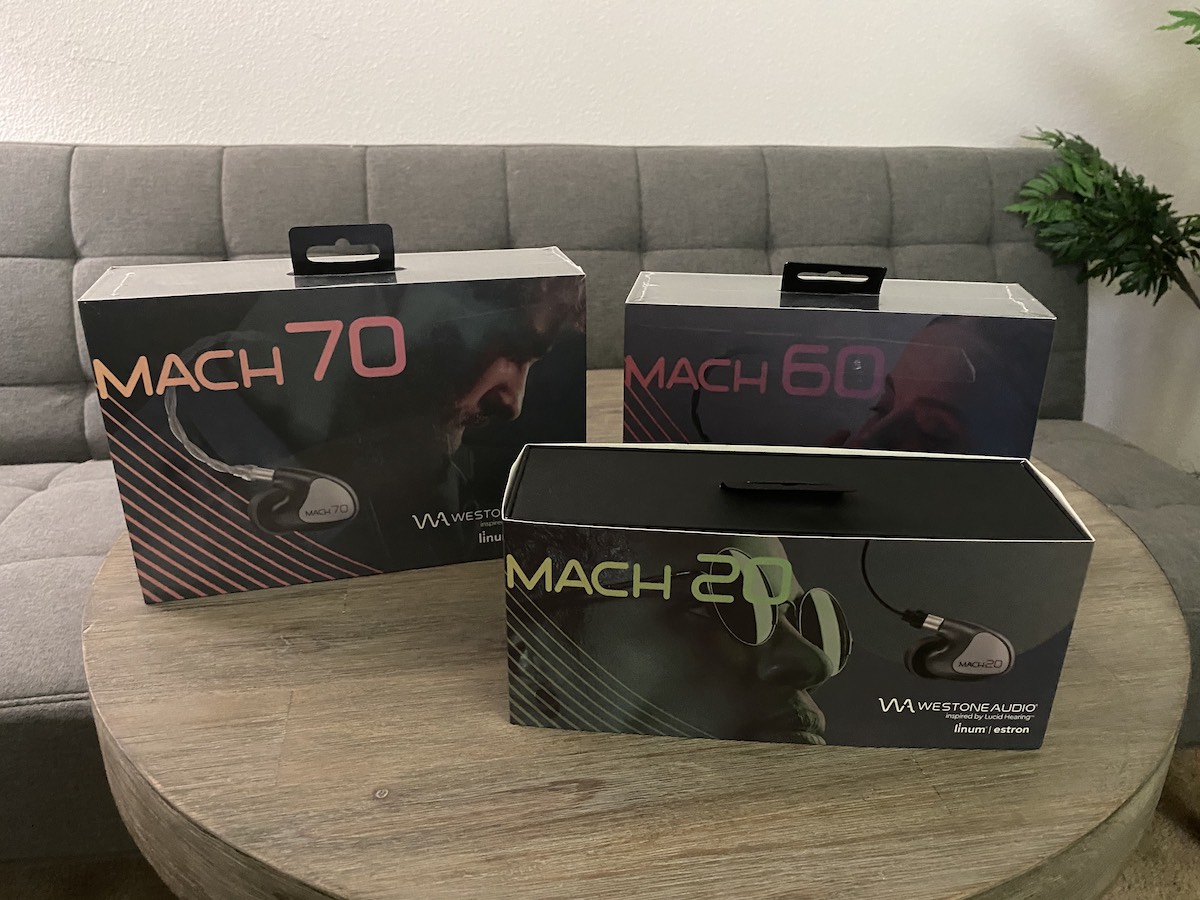
Want to join discussion?
Feel free to contribute!